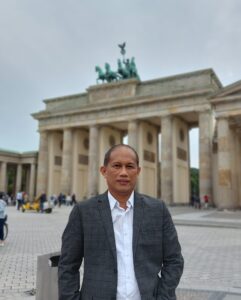Nico Carpentier
Nico Carpentier is an Extraordinary Professor at Charles University, Czech Republic and Visiting Professor at Tallinn University, Estonia. He also serves as president of The International Association for Media and Communication Research (IAMCR) (2020-2024).
His latest books are The Discursive-Material Knot: Cyprus in Conflict and Community Media Participation (2017, Peter Lang, New York); Cyprus and its Conflicts. Representations, Materialities, and Cultures (2018, co-edited), Critical Perspectives on Media, Power and Change (2018, co-edited), Respublika! Experiments in the Performance of Participation and Democracy (2019, edited), Communication and Discourse Theory (2019, co-edited) and Communication as the Intersection of the Old and the New (2019, co-edited), Iconoclastic Controversies: A photographic inquiry into antagonistic nationalism (2021, Intellect).
Democratic Hybridities: A Model to Emphasize Struggles of Democracy and Media
Abstract
Grounded in a discourse-theoretical approach, this presentation locates democracy and the democratic roles of media in a series of socio-political struggles, which render their meaning contingent and hybrid. The object of the presentation is to investigate the consequences of defining democracy itself, and its relationship to media, as object of socio-political struggles, which raises questions about their core characteristics, their conditions of possibilities, the areas of internal struggle and the external threats. Together, these elements, illustrated by diverse examples, will form a model that will allow to place more emphasis on the hybridities of democracy, media and their relationship.
Masduki
Masduki is a Professor of Journalism and Media Studies at Universitas Islam Indonesia (UII), IAMCR Indonesia Ambassador, and founder and head of PR2Media Yogyakarta. Masduki is a lecturer at the Department of Communication UII and holds a doctoral degree from LMU Munich Germany.
His latest book includes ‘Public Service Broadcasting and Post-Authoritarian Indonesia’ (Palgrave Series in Asia and Pacific Studies, 2020). Masduki is a member of the Worlds of Journalism Study, managing the project for the Indonesian chapter (since 2014). Besides, he organises several academic research and advocacies regarding media diversity and media ownership in post-authoritarian Indonesia, the safety of women journalists, and its impact on media and journalistic freedom in Indonesia during the last decade. Before entering the academic field, he was a radio journalist and worked for the Alliance of Independent Journalists (a prominent journalist association in Indonesia) as a media sustainability consultant.
Hybrid Media and Democracy in Post-authoritarian Indonesia
Abstract
This presentation revisits the debate surrounding the concept of hybridity through a case study of the mass media ecosystem in the context of post-digital politics in Indonesia. Hybridity will be examined not only from a technological perspective but also in light of the shifting regulations and mass media ecosystem, strongly affected by the political climate in post-authoritarian Indonesia. Theories on hybrid media systems, such as those proposed by Chadwick (2017), along with insights on media transformation in post-colonial and post-military contexts from scholars like Jakubowicz (2007), Voltmer (2012), and Tambini (2015), will be reviewed with Indonesian context. Furthermore, the discussion on hybridity will incorporate Jurgen Habermas’s theory of deliberative democracy to understand the digital media landscape, which is often obscured by political disinformation. This presentation aims to inspire media and political studies scholars, activists, and policymakers to reassess the media architecture in Indonesia, which currently tends to affirm an authoritarian-neoliberal model while neglecting a democratic media model.

